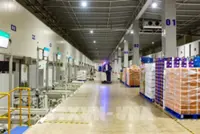HANOI: Vietnam is learning from international experience to develop a carbon market to ensure its suitability for the country’s legal framework and infrastructure.
The carbon market is one of the important carbon pricing tools along the way to the country’s net-zero goal by 2050, said Ho Thi Hang, deputy director of the Finance Ministry’s Legal Department.





